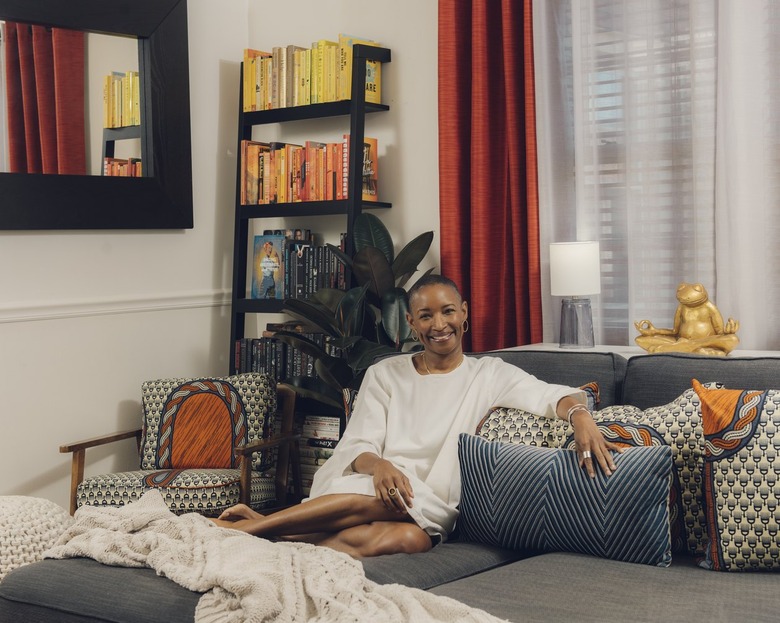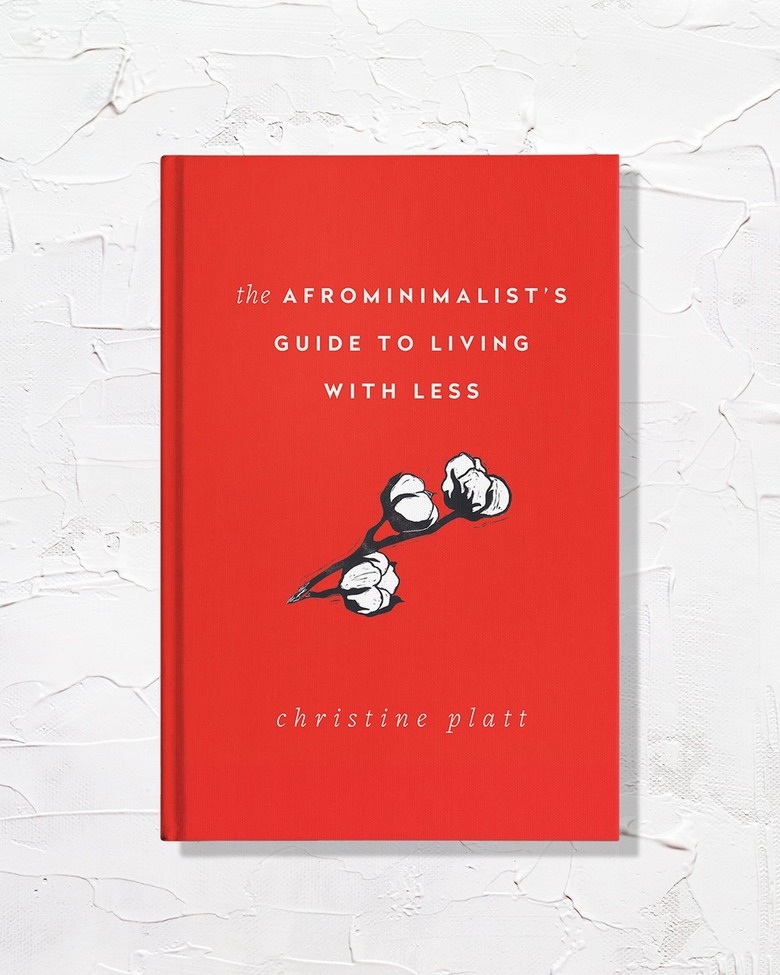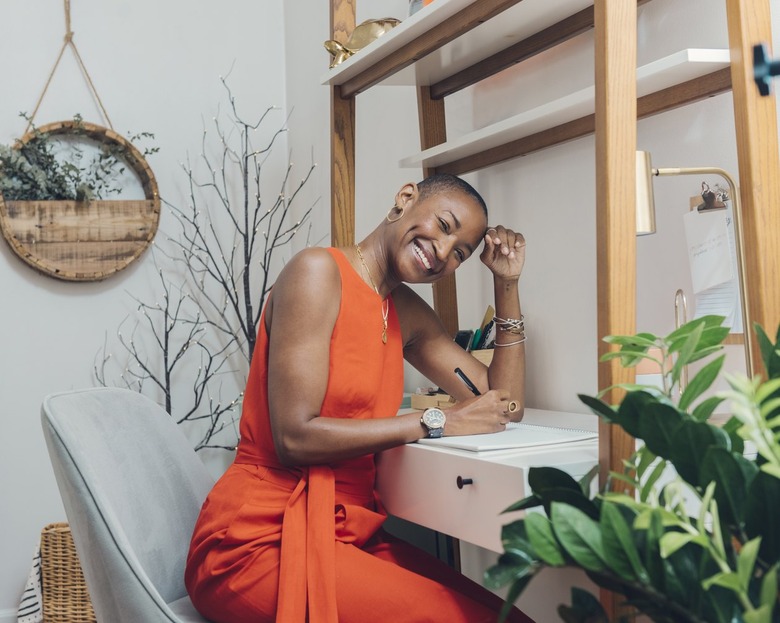Christine Platt Proves There's No One Way To Be A Minimalist
Christine Platt, better known as The Afrominimalist, believes that minimalism is more than an aesthetic— it's a mindset, a practice, a lifestyle. And despite what mainstream media and mostly white influencers will have you believe, there is no one way to be a minimalist. She would know — she literally wrote the book on Afrominimalism.
The Afrominimalist's Guide to Living With Less offers readers a mindful and practical approach to living with authenticity and intention. Defined as a "minimalist lifestyle influenced by the African diaspora," Afrominmalism is something Platt has been practicing since 2016.
Hunker caught up with Platt to discuss her new book, design aesthetic, and advice for others.
Hunker: Your version of minimalism is about more than decluttering and reorganizing. How would you describe your approach?
Christine Platt: My minimalist practice is an authentic practice that reflects what's important to me, which is the beauty, history and culture of the African diaspora ... So minimalism for me is going to look very different from mainstream minimalism. There's going to be color. There's going to be textures. There are going to be mementos from my trip to West Africa. There's going to be my jar filled with raw cotton to honor the strength and resiliency of my ancestors.
Hunker: In the book, you talk about how this notion of Afrominimalism as tied to liberation, how did you make that connection?
CP: When I went to West Africa in 2019, I remember thinking "wow, who we are as a people, like most marginalized groups and indigenous populations, is very much about what we need." We're very respectful of the land and this idea that if I have, then my neighbor has. It's almost the exact antithesis of living in a capitalist society.
So when I talk about less as liberation, it's liberation from so many things — such as cultural and societal expectations — and being your authentic self. It's being liberated from a lot of what we've been taught in a capitalist society, which is buy, buy, buy. And it's so liberating, this idea that I don't need things to prove my worth or value within society. It's liberation from the idea of what success means and should look like ... What that means will look and feel different for everyone, but it's very powerful.
Hunker: And your approach to minimalism begins with shifting your mindset. Why is it important to start there?
CP: I know a lot of people are going to open up this book thinking, "go and get your donation bag!" But first, we need to talk about why we have so much more than we need and understand why it's so hard to let go before we touch anything. I hear people who say "I tried to declutter so many times and it keeps on filling up," and that's because you don't know the root causes of your overconsumption, your triggers, when you're more prone to emotional spending, why you're motivated to buy certain things. I'm not saying you don't buy anything ever. I'm saying let's be really mindful and intentional about what we purchase and what we allow and accept into our lives.
Focus on being a mindful and intentional consumer. Forget this whole idea of minimalism, almost erase the word from your vocabulary because that word evokes a certain aesthetic, image, and demographic. The best way to become a more conscious consumer is to do the self-discovery work so you can understand your psychology of ownership. Understanding why you have so much more than you need and why it's so hard to let go.
Hunker: I also appreciate that you've created a community full of authenticity and diversity in a space that has traditionally been so white.
CP: There are additional considerations for our community that are never going to be addressed in mainstream media and minimalism, which is why I created the callouts in the book labeled "For the Culture" to address the specific needs and concerns of Black people.
I'm not the only Black minimalist and I love that we've created a space for ourselves in this lifestyle industry.


